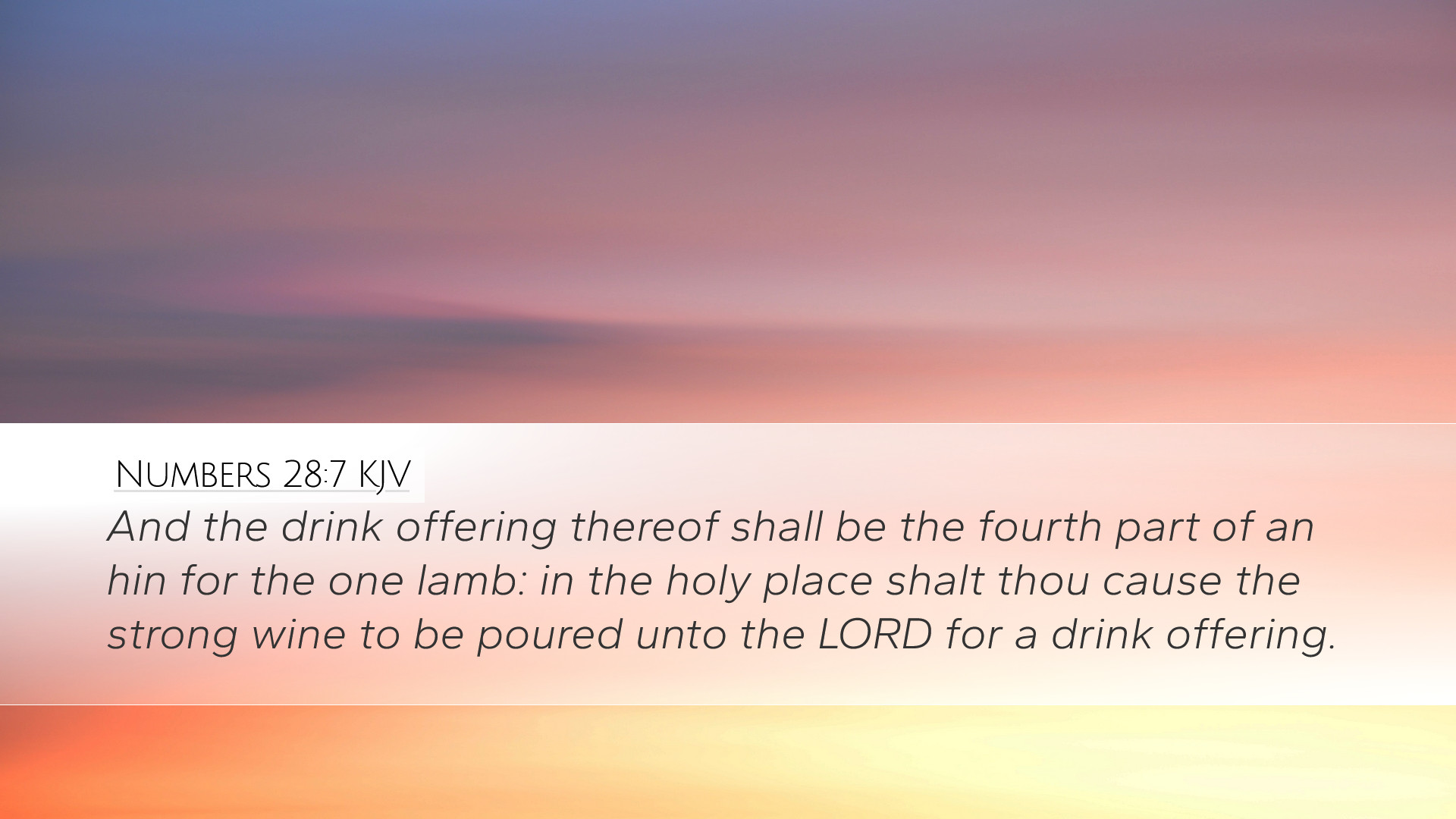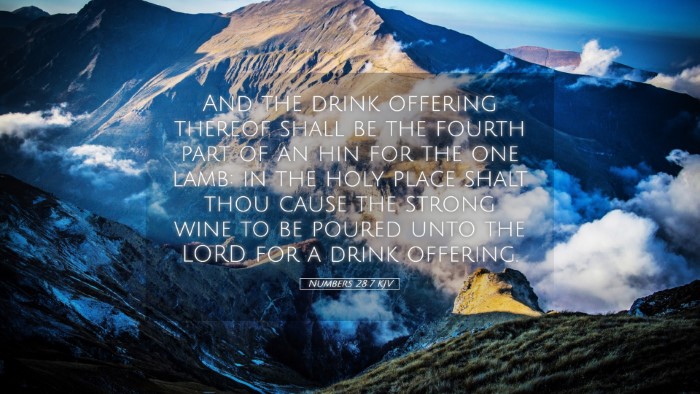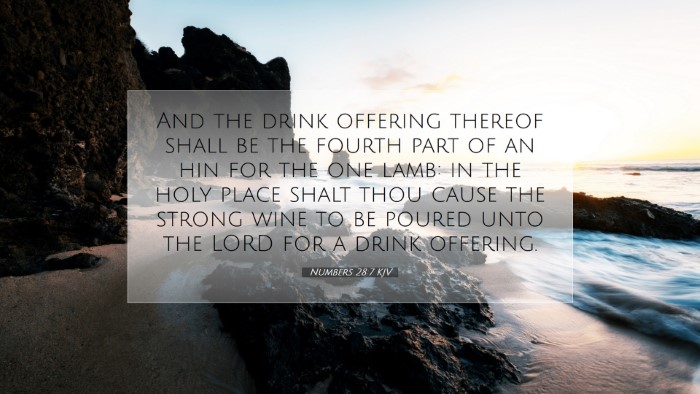Bible Commentary on Numbers 28:7
Numbers 28:7 states: "And the drink offering thereof shall be the fourth part of an hin for the one lamb: in the holy place shalt thou cause the strong wine to be poured unto the Lord for a drink offering."
Overview
This verse is part of the detailed instructions given to the Israelites regarding their offerings and sacrifices. Understanding these varying offerings provides deep insight into the sacrificial system established in the Mosaic Law. In this commentary, we explore the significance of the drink offering, its typology, and the implications for contemporary readers.
The Drink Offering Explained
The drink offering mentioned in Numbers 28:7 is significant in that it reflects both a physical and spiritual act of worship. When an Israelite poured a drink offering, it was more than just a formal procedure; it was an act that engaged the heart and mind in devotion to God.
Historical Context
Matthew Henry refers to traditional Jewish practices where wine was poured out as an offering to signify joy and gratitude. In the Old Testament, wine was often associated with gladness (Psalm 104:15). The provision of a drink offering signifies an integral part of worship, where the faithful dedicate their harvest and bounty back to God as an act of thankfulness.
Symbolism of Wine
Albert Barnes highlights that wine in the Scriptures often symbolizes the blood of Christ, which brings forth redemption and salvation. The drink offering can be seen as a precursor to the New Testament concept of Christ’s sacrifice, emphasizing that our offerings should be offered in a spirit of holiness and faith.
Typological Significance
Adam Clarke suggests that the drink offering serves as a type of the Holy Spirit's influence in the life of the believer. Just as the drink was poured out, believers are called to pour out their lives in service to God, emulating Christ's sacrificial love. This points to the idea that worship is not merely about ritual, but about spiritual significance and the transformation of life.
Specifics of the Offering
The requirements for the drink offering were precise; it was to be “the fourth part of an hin for the one lamb.” This exactness demonstrates that God desires sincere and well-prepared worship. Each person bringing an offering was to reflect on their motivations and intentions behind the act.
Implications for Worship
Henry notes that the act of offering was meant to be a total commitment to God, akin to total surrender of oneself. Worship involves giving God not only the best of our possessions but also the best of our hearts and intentions.
Communal Worship
The communal nature of these offerings cannot be overlooked. They fostered unity among the Israelites, binding them together in their common faith and mutual dependence upon God's provision. Barnes posits that our worship should also seek to raise the community of believers, reinforcing the shared presence of God among His people.
The Role of the Priestly Family
Furthermore, Numbers 28:7 reflects the role of the priests who were designated to carry out these offerings in the holy place. They stood as mediators between God and His people. This role points forward to Christ, our ultimate High Priest, who makes intercession for us.
Calls for Holiness
The emphasis on the "holy place" signifies that worship should always be conducted in a manner worthy of God’s holiness. Clarke emphasizes that every act of worship, including the drink offering, should be reverent, acknowledging God’s supreme stature and holiness.
Practical Applications
For the contemporary believer, Numbers 28:7 offers several meaningful applications:
- Intentional Worship: Every act of worship should be intentional and grounded in a sincere desire to honor God.
- Community Living: Worship transcends individual acts; it involves the body of Christ coming together in unified faith and thanksgiving.
- Sacrifice of Self: Just as the drink offering was poured out, so too are believers called to pour out their lives in service and dedication to God, reflecting Christ’s love to others.
- Holiness in Worship: We are reminded that our worship should stem from a heart aligned with God’s will, recognizing His holiness and majesty.
Conclusion
In summary, Numbers 28:7 encapsulates a profound aspect of worship through the drink offering, highlighting the need for sincerity, community, and holiness in our offerings to God. As we reflect on this verse, may our worship be more than ritual; may it be a life poured out in service and adoration for our Lord.


